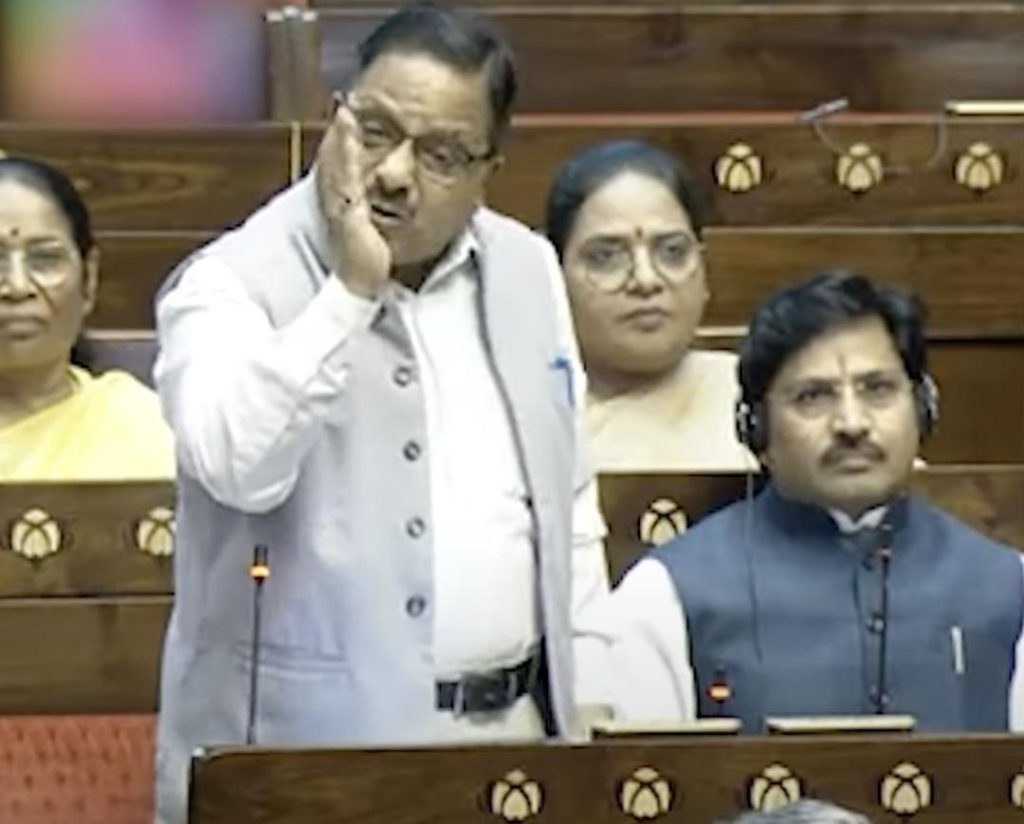
Should I Read Quran & Tell You What’s Written in It: BJP MP Radha Mohan Das on Waqf Bill
In a recent discussion on the Waqf Bill in the Indian Parliament, BJP MP Radha Mohan Das raised an interesting point that has sparked controversy and debate among many. During the discussion, he asked if he should read the Quran and tell what is written in it. This remark was in response to the claims made by the Waqf Board regarding their properties and assets.
For those who may not be aware, the Waqf Board is a statutory body responsible for managing and regulating the charitable trusts and properties in India, primarily owned by the Muslim community. The Waqf Bill aims to reform and streamline the Waqf Board’s functioning, allowing it to take more control over the management of these properties.
However, the discussion on the Waqf Bill took an interesting turn when Radha Mohan Das, a BJP MP, questioned the authenticity of the Waqf Board’s claims. He pointed out that the Quran, the holy book of Islam, has certain rules and regulations regarding the management of properties and assets. According to him, the Quran states that even if one rupee is given to anyone, there should be a written record.
“It says that even if one rupee is given to anyone, there should be a written record…And you say you have so many properties without a record,” he said, addressing the Waqf Board.
This statement has sparked a heated debate, with many questioning the BJP MP’s intentions and motives. Some have accused him of trying to mislead and misinterpret the Quranic verses to further his party’s agenda, while others have defended him, saying that he was simply highlighting the importance of transparency and accountability in the management of these properties.
So, what does the Quran actually say about the management of properties and assets? To understand the context and relevance of Radha Mohan Das’s statement, it is essential to delve deeper into the Quranic verses.
In the Quran, there are several verses that deal with the management of properties and assets. One of the most relevant verses is Surah Al-Tawbah, Chapter 9, Verse 34, which states:
“And those who hoard gold and silver, and spend it not in the way of God, announce unto them a painful torment.”
This verse is often interpreted as a warning against hoarding wealth and not using it for the benefit of others. Another relevant verse is Surah Al-Baqarah, Chapter 2, Verse 188, which states:
“And those who hoard gold and silver, and spend it not in the way of God, shall have with God no increase, and shall be with them a painful torment.”
These verses emphasize the importance of using wealth and assets for the benefit of others, rather than hoarding them for personal gain. In this context, Radha Mohan Das’s statement about the Quranic verse regarding written records makes sense. He is highlighting the importance of transparency and accountability in the management of properties and assets, something that is essential in a democratic society like India.
However, it is also important to recognize that the Waqf Board is not just any ordinary organization. It is a statutory body responsible for managing and regulating the charitable trusts and properties in India, primarily owned by the Muslim community. As such, it is essential to ensure that the properties and assets under its management are used for the benefit of the community, rather than for personal gain or corruption.
In conclusion, Radha Mohan Das’s statement about reading the Quran and telling what is written in it may have sparked controversy, but it has also highlighted the importance of transparency and accountability in the management of properties and assets. While his intentions may have been misunderstood by some, his statement has also brought attention to the relevance and importance of Quranic verses in the management of these properties.
As we continue to debate and discuss the Waqf Bill, it is essential to remember that the Quran is a sacred book that has guided millions of Muslims around the world for centuries. Its verses have been interpreted and applied in various ways, and it is essential to approach the discussion with respect and sensitivity.
Sources:




